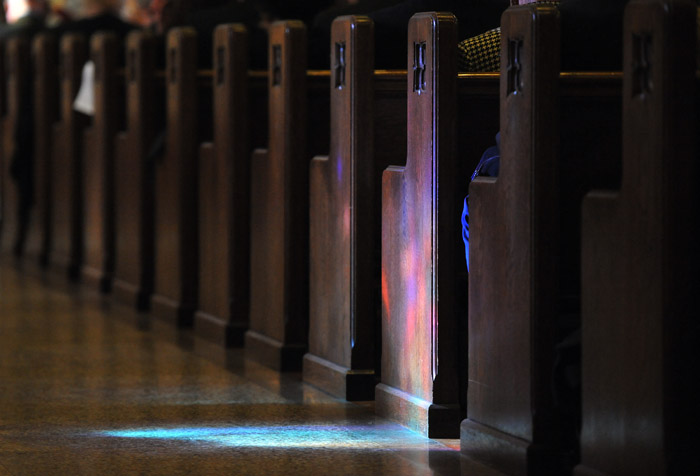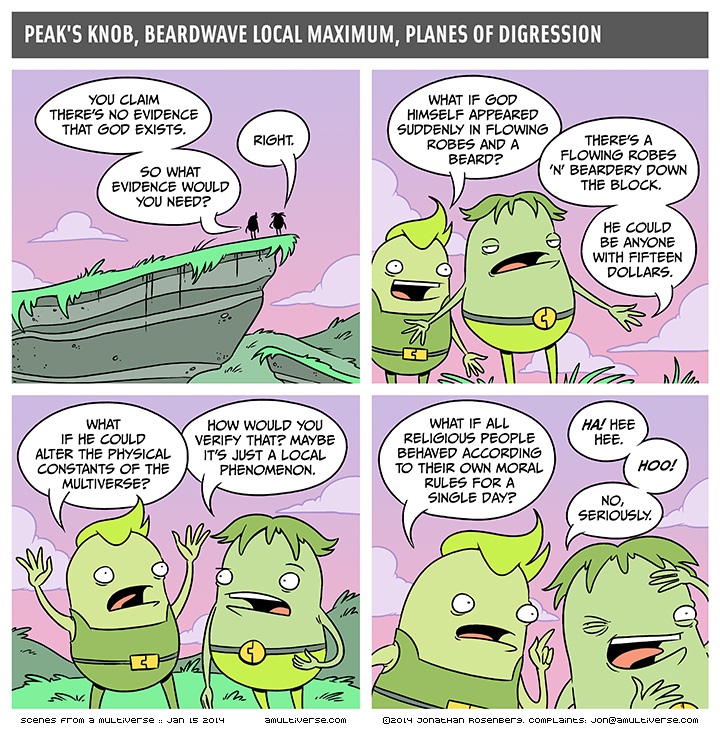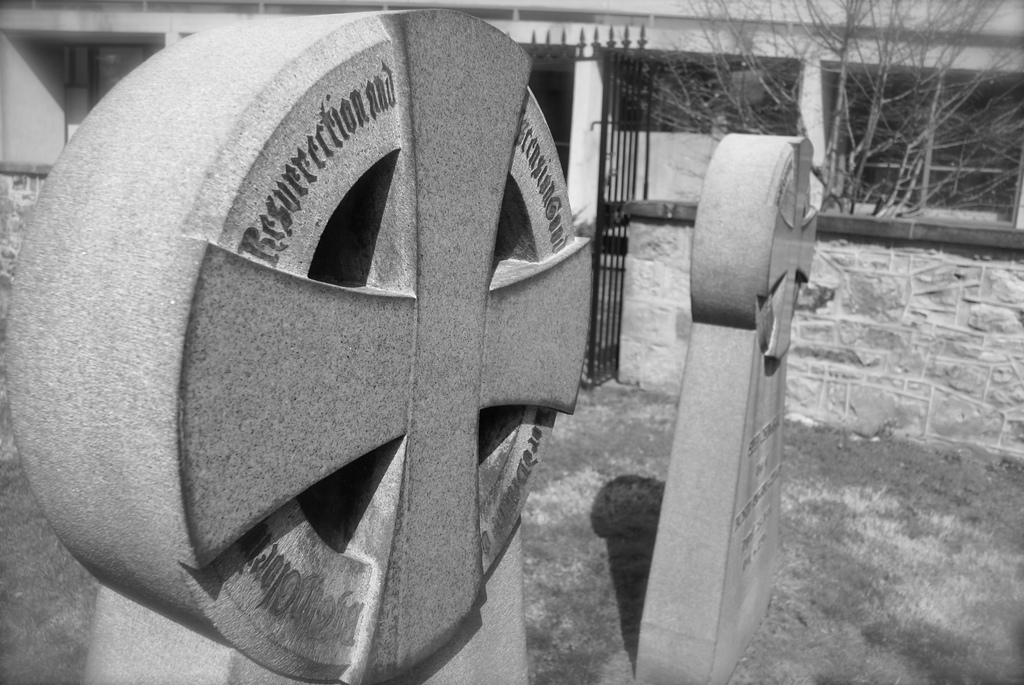The audio, always a bit different, can be found at the St. B’s website.
Third Sunday of Easter (April 30, 2017)
- Acts 2:14a, 36-41
- Psalm 116:1-4, 12-19
- 1 Peter 1:17-23
- Luke 24:13-35
Luke 24:21a “But we had hoped that he was the one to redeem Israel.”
Acts 2:37 Now when they heard this, they were cut to the heart and said to Peter and to the other apostles, “Brothers, what should we do?”
Our Gospel reading for today reminds me of another story, no doubt apocryphal, that Elizabeth and I heard about an older priest of a little country parish in England. It seems someone new had moved into the parish and the priest, being old school in that way, went round on his bike to see the newcomer. (Think Father Brown on his old postman’s bike.) The priest knocked on the door and the gentleman answered and was very friendly. They chatted for awhile and the priest enquired after the man’s line of work. He said he was a musician and the priest said, “Wonderful! It would be a blessing for us if you would join us one Sunday to offer your gifts in worship.” The man agreed and so the next Sunday, after pronouncing the Peace, the little priest welcomed the newcomer to the front of the church. He announced, “I am also very pleased to say that we have a new member of our parish and he is a musician. He is offering us his gifts to God this morning. So as we prepare for Eucharist we welcome also Mr. Eric Clapton who will play our offertory.” The priest, as we were told, had no idea who Mr. Clapton was. I suspect, however, that when he began to play his guitar even the priest knew that this was someone uniquely gifted and talented.

This last chapter of Luke begins with the absence of Jesus. For three years or so these people had followed Jesus, listened to him teach, watched him heal and feed thousands, and now…now he was gone, killed in the most violent of ways. Now his followers are grieving and mourning the death of their teacher, their master, their friend. He is no longer with them. So this last chapter of Luke’s Gospel opens with the women seeking to anoint and care for his body, even in death. Then there is Cleopas and his friend, walking despondently in early evening, trying to understand what had just happened and what it meant.
The narrative and our theology tends to move quickly from this moment of grief to the triumph of the resurrection. The women arrive at the tomb and the the angels appear to announce that Jesus has risen and to remind them that this was all part of God’s plan. But I think it is important that we remain for a moment on the way, walking with the women to the tomb, walking with Cleopas to Emmaus, walking in mourning.
The theologian Shelly Rambo comments on the fact in Christianity we often compound the pain of trauma and suffering when we retell the story of our redemption, the story of the passion and resurrection. We often move so quickly from the crucifixion to the resurrection that our “theology is complicit in covering over suffering, in offering a redemptive gloss over its deep wound.” [mfn]Excerpt From: Rambo, Shelly. “Spirit and Trauma.” Westminster John Knox Press, 2010.[/mfn] Christians sometimes try to encourage one another after a death by saying, “Don’t grieve! They are with the Lord and we will see them soon!” This is a great truth and can be a great comfort, but if we move too quickly, we devalue suffering, we can make it seem as if all grief, trauma, and conflict must be set aside in light of the empty tomb. Rather than acknowledging that the Cross, the suffering of Jesus, is at the center of our faith. Remember that Jesus asked Cleopas, “Was it not necessary that the Messiah should suffer these things?”
Who here has not suffered, mourned, and grieved? Who has not been depressed, sad, or lonely? Many of us have loved ones who have died and while we celebrate and are thankful for the time we had with them here on Earth, we miss them deeply and yearn for the time we are reunited. Two weeks after Mack died I offered a very poor analogy for this experience. It is a bit like being forced to wear a pair of painful, ill-fitting shoes. They may look beautiful, but they hurt badly and make you limp, wince, and cry, but you can’t take them off. The only way to ease the pain is to start walking, to break them in. Blisters form, then calluses, and the limp begins to settle in. After a while, months or years, I still don’t know when, I imagine that you begin to think less and less about what shoes you are wearing and most people won’t notice the limp and the occasional wince. In the meantime, we live with the pain and we walk. We cannot, we should not, hasten the time we have here, even if it means we must continue to walk this path with the limp of sadness.
For a year now the St. B’s community has lived with some uncertainty, anxiety, and even anger. Father Jerry was with you as your servant-leader for a long time and now we continue to pray and wait to see whom God will call to serve this community for the coming years. But in between many grieve. They miss Jerry. They are uncomfortable and nervous about what changes a new priest will bring. Others are ready for change and, perhaps with some anxiety, are eager to see whom God has called. I would suspect most feel some of both, a sadness of what has passed and an eagerness for the future. This is a path that we walk together, as a community in tension and in transition, moving from one place to another.
Some of us bear our own, very personal scars, the wounds from emotional, physical, and spiritual violence. Rambo defines “trauma” as “what does not go away.” But she also reminds us that while trauma, these wounds that seem never to heal, can challenge our theology it can also be key to our understanding of healing and redemption. We are lying to the world if we say that becoming a Christian means the end to struggles and strife. Death, in this way, is always a part of life and that remains even after Jesus rose from the dead and ascended into Heaven. It is this life in the middle, in between with its mixture of death and life, blessing and struggle, to which we are called to bear witness. This is “why it was necessary that the Messiah should suffer these things.” God himself now bears witness to our experience and he walks with us, we are joined with him in suffering just as we will join him in his resurrection.
“Jesus himself came near and went with them.”
Cleopas and his friend had set out from Jerusalem to Emmaus having heard the account from Mary Magdalene, Joanna, Mary the mother of James, and the other women (Luke 24:10) that Jesus had risen from the dead. They could not figure out what to make of the last three days. They were in shock, grieving, and bewildered. They had believed that he was “a prophet mighty in deed and word before God and all the people” and they hoped “that he was the one to redeem Israel.” But now all their hopes were gone. Sure, the women had told them what the angels had said, but none of them believed the women. So they trudged along, shuffling their feet, asking each other “How could this happen?” “We had such hopes and dreams!”
“Jesus himself came near and went with them.”
Jesus met them on their journey. He listened to their fears and their mourning. Their anger and frustration. But he did not let them stay in that state. He challenged them, meeting them where their needs were. They needed to see how it was that Jesus was the fulfillment of all the Law and the Prophets, how the Messiah was indeed to suffer and die before he was raised from the dead. This stirred their hearts and made them glad of his company and loathe to see him go on. But it was in the simple act of the blessing and the breaking of the bread that they recognized Jesus.
Remember, these two were not with Jesus at the last supper. This was not a reenactment of that meal nor an institution of our Eucharist. Rather it reminded them of the feeding of the five thousand, the gracious provision of God for his people. They recognized Jesus in the blessing and giving of sustenance and support. He had provided them with what they needed on their journey. He met them and walked with them in their pain and grief, even as their world was being transformed.
So we are walking, we are not to stand still, sit, or wallow in our grief. Yet neither do we fully leave it behind. This is our human condition, to live with our trauma, our wounds and hurts. But our redemption is that the Messiah suffers with us and for us so that we may be comforted, strengthened, and healed. This is why it was necessary that the Messiah should suffer these things before he entered into his glory.
Heb. 4:14 Since, then, we have a great high priest who has passed through the heavens, Jesus, the Son of God, let us hold fast to our confession. 15 For we do not have a high priest who is unable to sympathize with our weaknesses, but we have one who in every respect has been tested as we are, yet without sin. 16 Let us therefore approach the throne of grace with boldness, so that we may receive mercy and find grace to help in time of need.
So we continue to walk even as we mourn, moving forward on the road knowing that Jesus walks with us, sharing the burdens of our journey, even as he opens up the words of Scripture and the words of our life so that we can see the work/plan of God and receive mercy and find grace to help in time of need.
Will you recognize him as your companion on this journey? Will you open up your heart to hear his words of comfort and receive them? Will you allow him to suffer with you? Will you accept the grace that he freely offers you?
Amen. ✠






One thought on “Walking in Mourning – The Road to Emmaus”
“We live with the pain, and we walk.” This entire message was powerful, timely. Thank you.